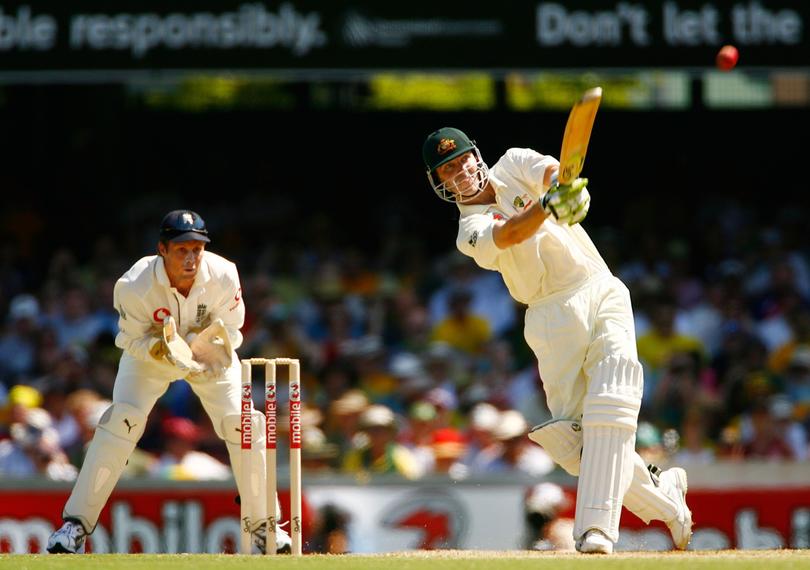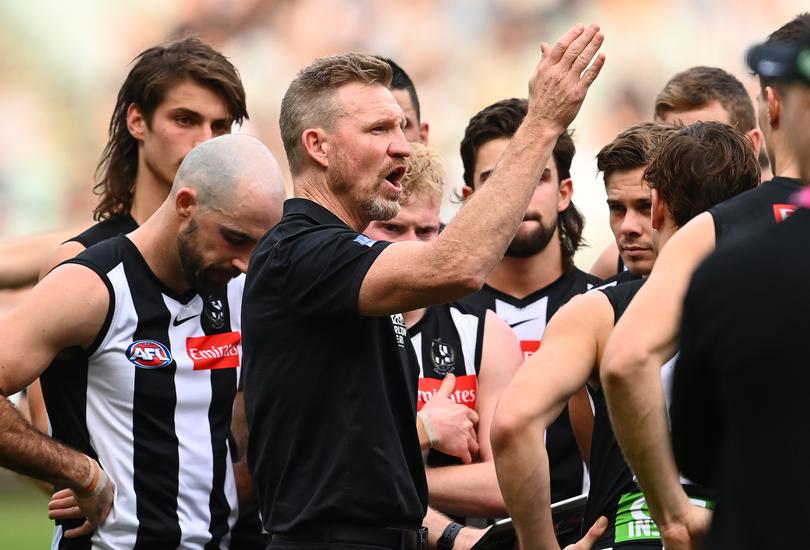JUSTIN LANGER: Public criticism rarely gets the results a coach wants as I learnt with Adam Zampa

Flatter me, and I might not believe you.
Criticise me, and I might not like you.
Ignore me; I will never forgive you.
Sign up to The Nightly's newsletters.
Get the first look at the digital newspaper, curated daily stories and breaking headlines delivered to your inbox.
By continuing you agree to our Terms and Privacy Policy.Encourage me, and I will never forget you.
These strong words have been written on my wall for many years. I don’t know who said them, but they have always been a guide and a reflection piece.
The question is, what works best?
Praise or a pile-on? A cuddle or criticism? The soft touch or a spray?
Some would say it’s a sign of the times we live in; maybe it is, perhaps it isn’t.
On the weekend, a couple of mates and I laughed about “the cuts” that the headmaster or headmistress could administer if you misbehaved.
Imagine telling my kids today that it wasn’t that long ago that poor behaviour at school could lead to a cane being wrapped around your backside or the palm of your hand.
Outrageous, they would cry. But back then, you would be sure not to make the same mistake twice.
The old football coaches would use sprays of abuse to get the best out of their teams. Check the internet today; we use some of these old-fashioned sprays as comedy rather than the intended inspiration. Did they work? They must have, or the coaches wouldn’t have used them.
Or did they just make the coach feel better in their frustration? Maybe it worked for some, but I would be reasonably confident they didn’t work for most.
Thankfully we were never smacked as kids, but my dad’s stare through the rear-view mirror or silent treatment assured us that we had some ground to make up when we’d made a wrong choice.
There were rarely any angry words in our home. I can only ever remember one argument my parents had. Funny, isn’t it that I still remember that one argument, even though 99 per cent of my childhood was quarrel-free?
Hopefully, my kids can say the same in our household. If they can, my mum and dad can hold their heads high. I know everyone isn’t as lucky as I was.
And I also know that how we are brought up often indicates how we are programmed to behave in the future.
In 2004, the Australian cricket team toured India. That series holds a special place in the hearts of myself and my teammates.
We had been a dominant force in world cricket, winning everywhere we went. However, India remained a daunting and final frontier for us to conquer.
An Australian team hadn’t won in India since 1969. Three years earlier, India had broken our 16-Test winning streak, and that defeat had left a bitter taste.
The stakes were monumental in our hearts and minds as if this was the final piece of our team’s achievement puzzle.
We won the first Test in Bangalore by 217 runs. In the second Test in Chennai, India fought back strongly, but rain forced a draw.
The pressure was building. Everyone was on edge.
In the third test of that remarkable series, our Mt Everest moment was achieved, sealing the series 2-0 with a game to spare.
Brilliant as that result was, there is a moment still vivid in my mind. At stumps on day one of the third test, we sat in the changing room debriefing the day’s play.
Damien Martyn had scored a magnificent century, and I had made a hard-fought 40-odd in tough conditions. We had a good day, and our spirits were high. In the debrief, way out of character, coach John Buchanan, a man I admire greatly, singled out “Marto” and I for a spray.

I was stunned. We had both worked so hard, yet one of our leaders was giving us a public dressing down.
Comparatively, it was nothing like a verbal bashing from a footy coach, but it still stung, mainly because it was in front of the whole team. I remember feeling two feet tall.
Did it make me better? I don’t know; maybe it did. But the fact I still remember it 20 years later is like the one argument I remember my parents having throughout my childhood.
Looking back, I know the pressure Buchanan must have been under, but I learnt two valuable lessons that day through his emotional reaction.
The first is that criticising someone publicly is rarely productive. Criticise privately; praise publicly rings true every time.
The second lesson is that you should never talk when you are emotional, especially when your emotions are negative. There is little to be gained in these moments.
If I have any regrets, it has been when emotion overtook my usual self-discipline or self-control. I remember having a John Buchanan moment in Bangladesh a few years ago.
We had been beaten, and I singled out Adam Zampa in our debrief. I am sure I did it gently, but he didn’t see it like that. From memory, I said something along the lines of “today wasn’t your best day, Zamps, but we know you will be better next game mate”.
From my mouth, this seemed gentle, but in his mind, I had belittled him in front of his mates.
I appreciated his honesty in letting me know how he felt, and that he would rather be told privately, than in front of his teammates. This was a good lesson and reminder that all small acts or words not carefully chosen can have a lasting effect on others.
I have shared a few collective home truths with teams I have captained and coached, and on reflection, I wish I could take every one of them back.
I can’t of course, but I can use my experiences to encourage others that criticism publicly is not the best use of your time, and it certainly won’t win you many favours.
On the other hand, some of the great moments of my life have come behind closed doors, when people who have cared about me, have sat me down and read me the riot act.
My gosh, I am thankful for this advice. I wouldn’t be the person I am today without it.
At the height of my Test career, my great friend and mentor Neil “Noddy” Holder invited me to his house for tea and a chat.
Soon into the meeting, Noddy dropped a bombshell by telling me he no longer wanted to help me with my batting.

He told me I was like an “out of control train, concentrating on everything other than my art. You are getting distracted by your success, and I can see you crashing. You have stopped working, stopped improving, at least on the one thing that matters at this point of your life and career: your batting. I don’t want to be there when the crash comes.”
I was shattered.
Today, I am relieved. And grateful.
The next day, I rang Noddy, told him I had heard what he was saying, and asked him to reconsider if I got back to work. He did, we went back to work and we are still good friends today.
His critique wasn’t in front of a crowd — instead, face-to-face — just the two of us.
I have been lucky to have been on the end of a number of these conversations in my life, and while they stung like “the cuts”, those people who cared enough to hit me with the truth are the ones I respect most in my life today.
This week I listened to a brilliant podcast, The Imperfects, with Nathan Buckley. I have never heard anyone say a bad word about the ex-AFL superstar player and coach, and it is no wonder after hearing his self-reflective honesty.
The part that grabbed me the most was when he talked about his transformation as a player.
He said that halfway through his career, he learnt about “criticism as a form of communication and how ineffective it is. Criticism was the only form of communication that I understood.
It’s the way I spoke to myself; it’s the way I analysed and assessed my own performance. It’s the way I viewed others, and it’s the way I spoke to myself and others. I had to flip it. And I did flip it. And because of this, I enjoyed the second half of my playing career infinitely more.”
Buckley talked about a world-renowned book he read that helped him change, How To Win Friends and Influence People. The author Dale Carnegie wrote back in 1936: “Any fool can criticise, condemn, and complain — and most fools do.”
Not a bad observation to reflect on the next time you have something negative to say to family member, work colleague or sporting teammate.

